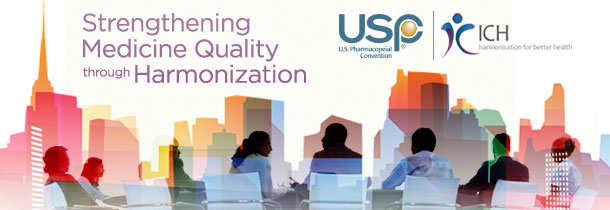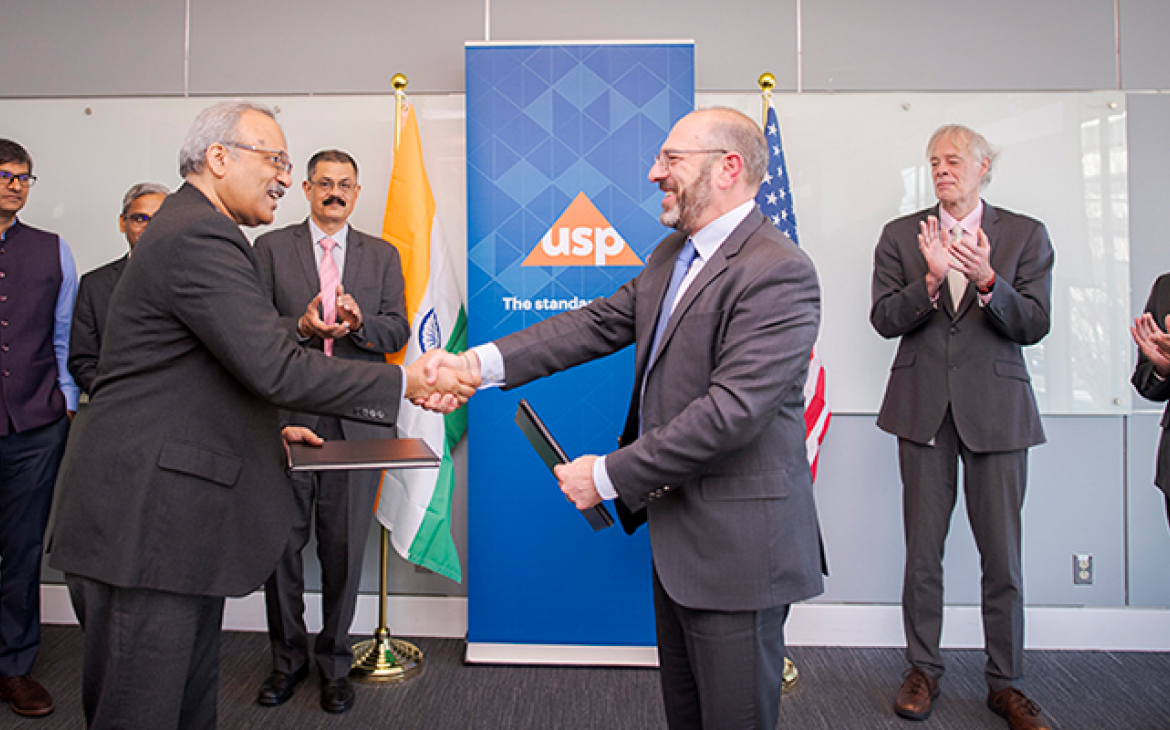
Over the past three decades, our medicines have become increasingly “globalized.” In the US alone, nearly 40 percent of finished drug products and approximately 80 percent of active pharmaceutical ingredients are manufactured outside of the country. While the globalized medical marketplace has improved patient access to new medicines, sadly, it has also provided increased opportunity for substandard, adulterated, and counterfeit medical products. The need for global, up-to-date, effective quality standards for medicines has never been greater.
Since 1990, the International Council for Harmonization of Technical Requirements for Pharmaceuticals for Human Use (ICH) has been working towards a solution by harmonizing technical requirements used to regulate and monitor medicine safety, quality and efficacy across international borders. USP, driven by a similar mission and having worked on related harmonization efforts, was proud to be accepted as an official Observer to the new ICH Assembly in June 2016 in Lisbon, Portugal.
ICH’s Evolving Scope of Work
ICH was formed in 1990 by pharmaceutical regulatory agencies and industry associations from Europe, Japan and the US—regions where, at the time, most pharmaceutical products were developed. Original ICH members were joined by Observer organizations from Canada and Switzerland. ICH’s initial focus was to identify topics for harmonization chosen from safety, quality and efficacy disciplines and develop guidelines to help streamline development and approval of new medicinal products in the ICH regions.
In 2015, an expanding global marketplace and growing interest in and use of ICH Guidelines beyond ICH regions led ICH to reorganize as an international association under Swiss law. ICH changed its name and created a new Assembly to govern the organization and expand participation to regulators, industry and other stakeholders worldwide. ICH’s also updated its mission “to achieve greater harmonization worldwide to ensure that safe, effective and high quality medicines are developed and registered in the most efficient manner.”
There are currently more than 60 ICH Guidelines. ICH Guidelines have helped reduce duplication of clinical trials, minimize animal testing, and simplify submission of new drug applications to multiple regulatory agencies. They also have created a common regulatory language that have helped to streamline regulatory review and monitoring processes.
USP’s Harmonization History and Link to ICH
USP has been historically active in international harmonization since 1989 when it formed the Pharmacopeial Discussion Group (PDG) along with representatives from the European Pharmacopeia and Japanese Pharmacopeia. PDG focuses on harmonizing pharmacopeial standards (i.e., excipient monographs and selected general chapters) to help manufacturers satisfy consistent pharmacopeial requirements across regions.
From 2003–2011, USP, along with its PDG partners, assisted ICH in determining the interchangeability of harmonized chapters by working closely with the ICH Q4B Expert Working Group. The establishment of interchangeability of these chapters was necessary in order to achieve full utility of these critical harmonized chapters in the three regions.
Working Together to Benefit Global Public Health
When new ICH provisions made it possible for international organizations with an interest in pharmaceuticals on the basis of their contribution or benefit to ICH to apply to be Observers to the Assembly, USP seized the opportunity. By virtue of becoming an Observer, USP now has the opportunity to participate in ICH harmonization activities as well as nominate subject matter experts to serve on ICH Expert Working Groups, with the final decision resting with the Assembly.
Greater involvement in ICH’s work and the collaborations that this opportunity affords both USP and ICH is truly a “win-win” all around. Our mission to improve global health through public standards and related programs that help ensure the quality, safety and benefit of medicines and foods aligns closely with ICH’s, as does our expert-driven, transparent standards-setting process.
ICH Guidelines have been instrumental in saving time and resources which, like USP standards, have ultimately helped facilitate patient access to new, life-saving medicines. We are truly excited to be a part of this effort!
Questions about USP’s role within ICH may be directed to Dr. Kevin Moore, Manager, Pharmacopeial Harmonization, or Dr. Katherine Bond, Vice President, Regulatory Affairs.
This article was authored by Jaap Venema, Ph.D., Chief Science Office (CSO), USP and Bob Femia, Ph.D., Senior VP of Chemical Medicines and General Chapters, USP.


